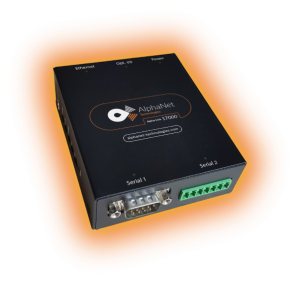Introduction to Modbus Communication
Brief History of Modbus Communication
Modbus communication is not a new term in the industrial automation field. Established in 1979 by Modicon, it has become a de facto standard communication protocol, especially in the realm of industrial automation. How has it managed to stay relevant over all these decades, you ask? Well, its simplicity, reliability, and open-source nature have played significant roles in its longevity.
Modbus Communication: The Basics
Modbus communication protocol operates on a master-slave mechanism. The master device, usually a computer, initiates communication and commands. The slave devices (e.g., sensors, actuators) respond to the commands given by the master. Simple as that!
Importance of Modbus in Industrial Automation
Boosting Operational Efficiency
One of the core reasons why Modbus is heavily utilized in industrial automation is its potential to boost operational efficiency. It allows for real-time data transmission, enhancing quick decision-making and reducing downtime.
Enhancing Communication Flexibility
Modbus provides a high degree of flexibility, supporting both digital and analog devices. It’s like having a universal remote that seamlessly integrates with various devices, helping your automated systems speak the same language.
Increasing System Reliability
With Modbus, industrial processes become more reliable. Why? Because it ensures robust communication among devices, minimizing the likelihood of system failures due to communication glitches.
Steps to Implement Efficient Modbus Communication
Selecting the Appropriate Modbus Protocol
When you start on this journey, the first step is to select the right Modbus protocol. There are mainly two types: Modbus RTU and Modbus TCP/IP. The choice will depend on your specific needs and existing infrastructure.
Designing a Suitable Modbus Network
Choosing the Right Devices
In the Modbus world, selecting the right devices – master and slaves – is crucial. Your decision should be based on the requirements of the automation system.
Ensuring Network Redundancy
Network redundancy is another key aspect in designing an efficient Modbus network. It helps safeguard the system against network failures, ensuring uninterrupted operations.
Fine-tuning Modbus Settings for Efficiency
Post network design, the next step is to fine-tune the Modbus settings. This includes setting up slave IDs, function codes, data addresses, and timeout periods. This meticulous setup guarantees efficient communication.
Case Studies: Successful Modbus Implementations in Industrial Settings
Over the years, many industries, from manufacturing to energy, have successfully implemented Modbus communication. These successful case studies serve as a testament to the protocol’s effectiveness in achieving streamlined automation.
Future of Modbus in Industrial Automation
Despite the emergence of new communication protocols, Modbus continues to hold its ground. Its future in industrial automation looks promising, given the continuous advancements in industrial technology and the enduring need for reliable and efficient communication protocols.
Conclusion
In the realm of industrial automation, efficient communication is vital, and Modbus has proven its worth over the decades. It’s not just about setting up Modbus communication but doing so efficiently, keeping in mind the specific needs of the system. The journey may seem challenging, but with the right approach and tools, it can lead to a highly effective industrial automation setup.
FAQ’s
1. What is Modbus communication? Modbus is a communication protocol used in industrial automation that operates on a master-slave mechanism.
2. How does Modbus improve industrial automation efficiency? Modbus enhances operational efficiency by enabling real-time data transmission and boosting communication flexibility among various devices.
3. What are the two main types of Modbus protocols? The two main types of Modbus protocols are Modbus RTU and Modbus TCP/IP.
4. How do you design an efficient Modbus network? Designing an efficient Modbus network involves selecting the right devices, ensuring network redundancy, and fine-tuning Modbus settings.
5. What is the future of Modbus in industrial automation? Despite new communication protocols, Modbus remains a reliable choice due to its flexibility and reliability. Its future in industrial automation looks promising.
conversor modbus


